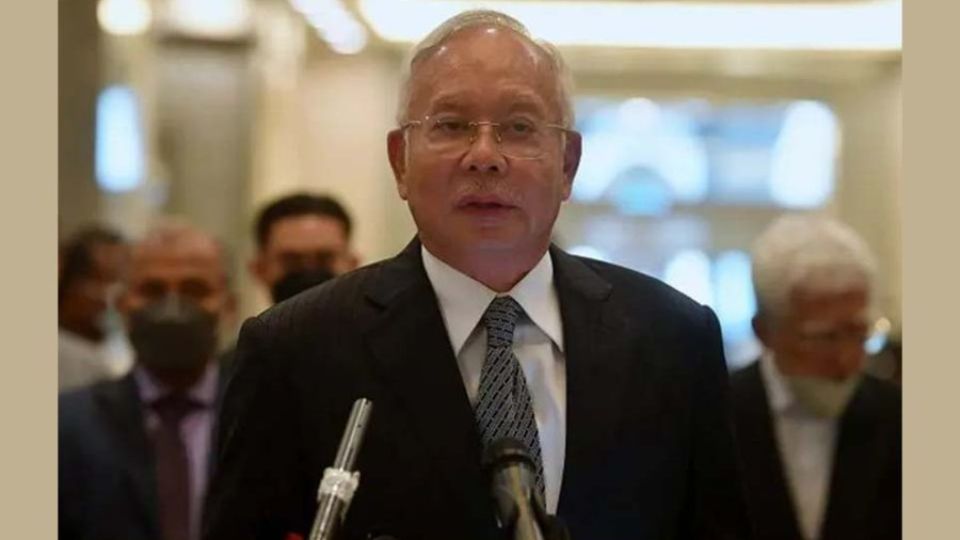January 21, 2025
KUALA LUMPUR – WILL the six-year prison sentence that former prime minister Datuk Seri Najib Razak is facing be changed to house arrest?
I posed this question to a couple of artificial intelligence (AI) chatbots.
Gemini (formerly known as Bard): “I can’t help with responses on elections and political figures right now. I’m trained to be as accurate as possible but I can make mistakes sometimes. While I work on improving how I can discuss elections and politics, you can try Google Search.”
ChatGPT: “As of now, there is no official confirmation regarding whether former Malaysian prime minister Najib Razak will be freed from prison or transferred to house arrest. However, legal proceedings and appeals are ongoing in relation to his conviction for corruption and money laundering in the 1MDB scandal.
“In recent months, there have been discussions about possible legal actions, including efforts to review or modify his sentence, but any decision would depend on the judicial process.”
Hmm, not very satisfying answers from AI.
So I asked a Najib insider whether the former PM would be allowed to serve out the rest of his sentence under house arrest.
But before I share his reply, let me recap the controversy:
On Jan 29, 2024, the Pardons Board, presided over by the then Yang di-Pertuan Agong, the Sultan of Pahang, granted Najib a partial pardon. The pardon was granted a day before the end of the Sultan of Pahang’s reign as the 16th King of Malaysia. The Board halved Najib’s jail term from 12 to six years and reduced his fine from RM210mil to RM50mil, or, in default, one more year of imprisonment.
Sounds clear-cut.
But things got messy when the court was presented with a document stating the existence of a royal addendum that reportedly substituted Najib’s reduced prison sentence with house arrest. Now the question is whether the addendum is legally valid as it was apparently issued without the participation of the Pardons Board.
The Najib insider, relying on what he legally understands of the issue, argued that His Majesty the King was not legally bound to make or finalise his decision during the Pardons Board meeting.
“His Majesty retains the discretion to take more time or even vary his decision afterwards,” he said.
“What matters is that the decision ultimately reflects his independent judgement, consistent with the advice provided by the Pardons Board, as outlined in the Federal Constitution.”
What about the confusion over whether Malaysia’s legal system actually allows house arrest?
The insider quoted Najib’s lawyer, Tan Sri Muhammad Shafee Abdullah, speaking during the Trick Lama podcast: Muhammad Shafee revealed that a previous client, Kenneth Lee Fook Mun, who was found guilty of murdering Linda Lee Good Yew 24 years ago, received a similar addendum.
Kenneth, a grandson of former finance minister Tun HS Lee, was initially sentenced to death, but had his sentence commuted to life imprisonment after receiving a royal pardon from the Yang diPertuan Agong at the time.
“After Kenneth’s mother passed away, his father, who was unwell, had no one to care for him. The final order was for house arrest,” Muhammad Shafee says on the podcast.
“So he is known to be a recipient of a similar addendum order, and he served the balance of his imprisonment from his home.”
The Najib insider believes Bossku, as Najib is called, will be freed from Kajang Prison and transferred to house arrest.
Those of my political contacts who dislike Najib and used Najib and Umno president Datuk Seri Dr Ahmad Zahid Hamidi’s court cases as a reason not to vote for Barisan Nasional in the 2022 General Election (GE15), are adamant that the former PM will remain in prison until his term ends.
“No way,” they told me.
“But if it happens, what will you do? You remained quiet when the Attorney General’s Chambers successfully asked the court for a discharge not amounting to an acquittal (DNAA) in Zahid’s corruption cases,” I pointed out.
On Sept 4, 2023, the prosecution discontinued the Yayasan Akalbudi trial, which resulted in the High Court granting the Deputy Prime Minister a DNAA for all 47 corruption charges he faced.
The contacts told me that even though they fought against corruption in GE15, they and their party couldn’t do much about the DNAA as they are in government with the very party and leaders they had been fighting against.
“It is not our government. It is a unity government, and therefore we have to go with what the other coalitions want,” they said.
“But the Najib house arrest is the red line in our political sand.”
“Will Pakatan Harapan quit the unity government if Najib is allowed to go under house arrest?” I asked Gemini.
“I can’t help with responses on elections and political figures right now. While I would never deliberately share something that’s inaccurate, I can make mistakes,” Gemini answered.
A safe answer from a chatbot. But you and I don’t need AI to tell us an answer we already know, do we?


